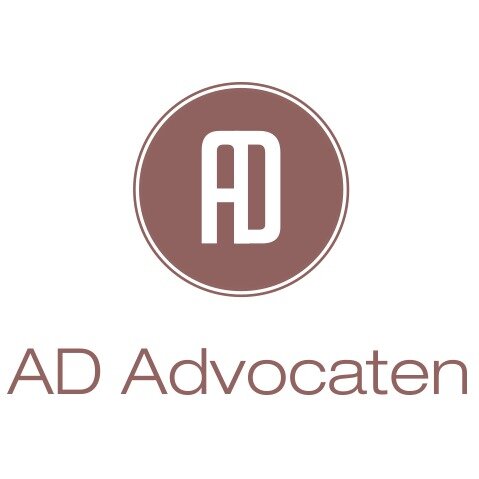Best International Trade Law Lawyers in Netherlands
Share your needs with us, get contacted by law firms.
Free. Takes 2 min.
Or refine your search by selecting a city:
List of the best lawyers in Netherlands
Netherlands International Trade Law Legal Articles
Browse our 2 legal articles about International Trade Law in Netherlands written by expert lawyers.
- Dutch BV Formation for EU VAT Deferment in the Netherlands
- Dutch BV Formation for EU Import Logistics and VAT Deferment Key Takeaways Establishing a Dutch Besloten Vennootschap (BV) is highly effective for non-EU companies seeking to manage European supply chains. The Netherlands serves as Europe's premier logistics hub, offering distinct corporate and tax advantages for international trade. A Dutch BV... Read more →
- Guide to Post-Brexit Trade via Netherlands Customs in 2026
- The Netherlands remains the primary "Gateway to Europe" for UK-based firms due to the Article 23 VAT deferment license, which eliminates the need to pay import VAT upfront. Compliance with "Rules of Origin" is mandatory for re-exporting goods into the EU to avoid double taxation under the EU-UK Trade and... Read more →
About International Trade Law in the Netherlands
International Trade Law in the Netherlands is a complex field grounded in both European Union regulations and domestic legislations that govern trade and commerce across borders. The Netherlands, due to its strategic geographical location, robust port infrastructure, and open economy, plays a significant role in global trade. Consequently, Dutch trade law is comprehensive, covering an array of activities from the sale, purchase, and transport of goods to intellectual property rights, trade restrictions, tariffs, and dispute resolution.
Why You May Need a Lawyer
Engaging with International Trade Law can be challenging due to its complexity and the potential implications of non-compliance. Here are common scenarios where you might need legal assistance:
- Understanding and adhering to import/export regulations.
- Drafting and negotiating international commercial contracts.
- Complying with customs laws and tariff regulations.
- Resolving disputes arising from trade agreements.
- Navigating trade sanctions and embargoes.
- Intellectual property protection across borders.
Local Laws Overview
The Netherlands incorporates several key aspects of international trade laws that you need to be aware of:
- EU Trade Regulations: As an EU member, much of Dutch trade law aligns with EU policies, including customs procedures and tariff structures.
- Customs and Excise Duties: The Dutch Customs Authority regulates the import and export of goods, ensuring compliance with EU customs rules.
- Trade Facilitation Agreements: Agreements that aim to streamline customs procedures and improve border agency cooperation.
- Intellectual Property Laws: Comprehensive laws protect intellectual property rights crucial in international trade settings.
- Sanctions and Export Control: The Netherlands adheres to UN and EU sanctions and maintains strict export control for certain goods.
Frequently Asked Questions
1. What is the role of the Dutch Customs Authority?
The Dutch Customs Authority is responsible for enforcing customs regulations, assessing duties and taxes, and ensuring compliance with import/export controls.
2. How can I ensure my contracts are legally binding under Dutch law?
Contracts should be clearly written, specifying terms, obligations, and dispute resolution methods. Consulting a trade lawyer can help ensure compliance with relevant laws.
3. What should be included in an international trade agreement?
Key elements include goods description, payment terms, delivery and risk transfer clauses, dispute resolution, and governing law.
4. How can I protect my intellectual property rights internationally?
Register your IP in each jurisdiction where protection is sought, and consider international treaties like the Madrid Protocol for trademarks.
5. What are the consequences of non-compliance with trade regulations?
Non-compliance can result in fines, legal action, and damaged business reputations. It's crucial to be informed and compliant with all applicable laws.
6. Are there specific export controls in the Netherlands?
Yes, certain goods like military and dual-use items are subject to strict export controls and require specific licenses.
7. How are international trade disputes resolved in the Netherlands?
Disputes can be resolved through litigation in Dutch courts, arbitration, or mediation, depending on the involved parties' agreement.
8. What kind of sanctions might affect trade in the Netherlands?
E.U. and U.N.-mandated sanctions can impact trade, often targeting specific countries, goods, or entities.
9. How can I find out current tariffs affecting my goods?
Check the European Commission’s TARIC database, which provides information on EU tariffs and customs duties.
10. Do I need a representative to import goods into the Netherlands?
While not mandatory, having a local representative can be beneficial for navigating customs procedures and legal obligations.
Additional Resources
Here are some recommended resources and organizations:
- Dutch Customs Authority
- Netherlands Chamber of Commerce (KVK)
- Ministry of Foreign Affairs
- European Commission’s Trade Page
- International Chamber of Commerce Netherlands
Next Steps
If you require legal assistance in International Trade Law, consider the following steps:
- Consult with a specialized international trade lawyer for expert guidance.
- Conduct thorough research on relevant laws and recent updates.
- Reach out to governmental bodies or trade organizations for initial advice.
- Attend industry seminars and workshops for valuable insights and networking opportunities.
Lawzana helps you find the best lawyers and law firms in Netherlands through a curated and pre-screened list of qualified legal professionals. Our platform offers rankings and detailed profiles of attorneys and law firms, allowing you to compare based on practice areas, including International Trade Law, experience, and client feedback.
Each profile includes a description of the firm's areas of practice, client reviews, team members and partners, year of establishment, spoken languages, office locations, contact information, social media presence, and any published articles or resources. Most firms on our platform speak English and are experienced in both local and international legal matters.
Get a quote from top-rated law firms in Netherlands — quickly, securely, and without unnecessary hassle.
Disclaimer:
The information provided on this page is for general informational purposes only and does not constitute legal advice. While we strive to ensure the accuracy and relevance of the content, legal information may change over time, and interpretations of the law can vary. You should always consult with a qualified legal professional for advice specific to your situation.
We disclaim all liability for actions taken or not taken based on the content of this page. If you believe any information is incorrect or outdated, please contact us, and we will review and update it where appropriate.
Browse international trade law law firms by city in Netherlands
Refine your search by selecting a city.















